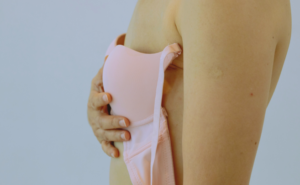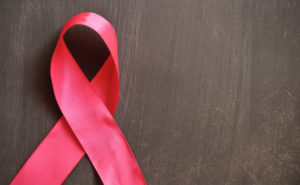According to the Journal of Breast Health, breast cancer is one of four types of cancer that affect women the most. There are several treatment paths available for women diagnosed. If the cancer is discovered early, there are generally two options available: a lumpectomy (removal of the tumor with some surrounding tissue) and a mastectomy (removal of all breast tissue in one or both breasts). While preserving life is the end goal of any treatment for cancer, it’s also important to consider how a body-altering treatment method, like a mastectomy, can affect your quality of life and mental health. So, how does a mastectomy affect your self-image?
How Does a Mastectomy Affect Your Self Image?
In many cultures, a woman’s breasts are considered a fundamental aspect of her identity and self-image, so undergoing a mastectomy can lead to struggles with body image. Body image is defined as the mental picture of our body, an attitude about the physical self, appearance, wholeness, normal function, and sexuality.
Body image, especially in the western world, is linked to your self-image, so such a fundamental change can drastically affect every aspect of your life and mental health. Whether or not you choose breast reconstruction surgery later on or post-mastectomy breast prostheses long term, a key part of your journey will be learning about your new body and its changes- both temporary and permanent. With the help of HOPE, an educational resource for all questions about health, you can ask any questions you have about breast cancer or self-image.
Body Image
A 2018 study found that women with mastectomies have lower body image scores even two years after a cancer diagnosis. While there is no tried and true method to counter this troubling fact, there are things you can do to help you feel as comfortable as possible with the loss you’ve endured. These educational resources provide beneficial information in finding comfort within your body post-mastectomy.
Comfort and Care
How does a mastectomy affect your self-image? The physical changes you undergo are extreme and can create feelings of discomfort and unease. One of the most immediate things you can do for comfort is to invest in post-mastectomy items. Whether you choose reconstruction surgery after your mastectomy, finding the right mastectomy bra with the right fit is necessary to help ease feelings of anxiety surrounding appearance.
Breast reconstruction surgery after a mastectomy involves rebuilding the breast, so you will not need a mastectomy bra with forms or pockets for a prosthesis. After fully healing, you can continue wearing typical bras. However, keep in mind when choosing your new bra that the skin and surrounding area of the breast can be sensitive. Being fit by someone certified in mastectomy bra fittings will help ensure long-term comfort. Searching for mastectomy bras can be difficult, but Horton’s orthotics and prosthetics made it easy with this all-inclusive guide.
For those who forgo breast reconstruction surgery, there are many options available. Breast forms are soft silicone-molded materials that sit comfortably next to your skin, made to fit each individual. These can give the feel and silhouette wanted without the reconstruction surgery.
For many, the idea of remaining braless is liberating. Luckily, specialists can also help choose a mastectomy camisole. Each camisole is fitted to your needs, and it provides a protective layer between your sensitive skin and clothing without the burden of a bra band.
Community
Social circles and interactions are an important aspect of our self-image because human beings, like it or not, are social creatures. Whether you’re a social butterfly or prefer a small group of close-knit friends, major treatments and surgery can affect all interactions. So, how does a mastectomy affect your self-image and sense of community?
What is a Community?
Your community consists of more than your romantic partner and/or family. It includes people with whom you see and speak regularly. If you participate in sports, maybe they’re teammates. Perhaps you’re in a book club together. They could even be a small group of friends you’ve had since high school. Regardless of how they originated as your community, they have become an integral part of your life. So when your life drastically changes, these relationships also change.
How Will Your Community Change?
One of the most common social issues detailed by breast cancer survivors is the drastic changes to established friendships. Many report that what were passing acquaintances, quickly became close friends, and others reported close friends became avoidant or simply disappeared altogether. These changes, like the others you face, can have a negative impact on self-image.
How to Reestablish Your Community?
However, close friends can also be relics of who we once were but haven’t been for a long time. When you experience the physical and emotional changes that come with surviving breast cancer, expending energy on others who do not share your goals or values is energy wasted. Create a new community. Seek out resources, such as local support groups or online message boards. Specific groups or message board for breast cancer survivors, like the A.B.L.E. support group for amputees in Arkansas, are out there! These resources can be invaluable to helping you expand your social circle and your mental health by meeting people who have the same experiences.
Sex Life
A primary concern women have after surgery is returning to things they enjoy, and sex is definitely part of that. When your body undergoes physical changes, it can create feelings of discomfort in your own skin. With a mastectomy, there is a possibility of a loss of sensation in the breasts. Breast cancer treatments that include therapies, like hormone therapy and chemotherapy, often affect hormone levels, which could lead to hair loss, sexual disinterest, and/or lessened sexual response.
If you are in a relationship, it is crucial that your partner educate themselves on all aspects of your treatment as a cancer patient. Doing so will help them understand what could happen to your mind and body. However, while being informed is incredibly helpful, they may still be reluctant or simply not understand how to express themselves sexually after surgery. Open communication and involvement in treatment, along with aftercare, can help mitigate these anxieties for both you and your significant other.
Contact
Horton Orthotics & Prosthetics can help you understand your options when it comes to post-mastectomy items, prosthetics, support, and education. Please contact us at 501-683-8889 for more information, or to make an appointment today.


